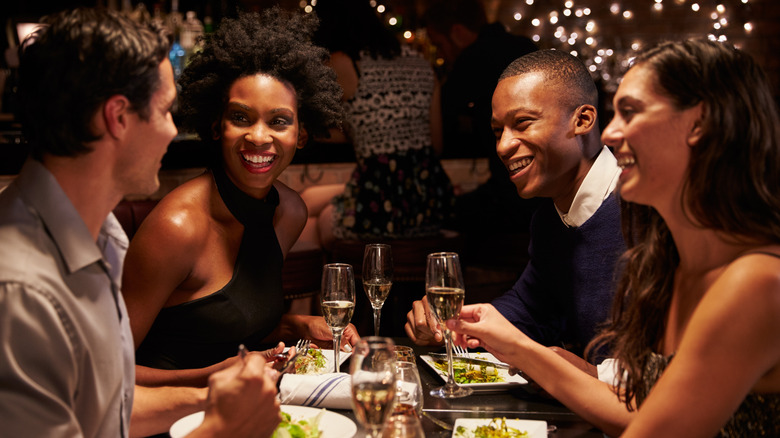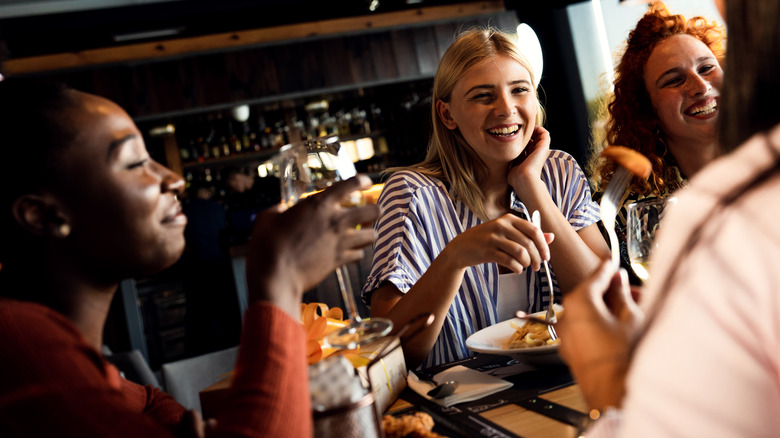The Real Reason People Are Calling Out Restaurant Dress Codes
Staying up-to-date with fashion trends is an almost impossible challenge. One minute only expensive suits and a sleek hairstyle will make the grade, whereas the next dressing up as a fluffy pumpkin and wearing sandals is suddenly the outfit of choice. Chasing an Olympic sprinter would be an easier task than trying to keep up with fashion.
As a consequence, choosing the correct clothes to wear for a night out is an arduous endeavor. While some less glamorous places are satisfied with people turning up wearing nothing but bath towels, more sophisticated establishments expect nothing less than polished shoes and bowties (and not the spinning variety).
Dressing up to eat out is an even greater dilemma for Black people, who have voiced deep concerns about racist attitudes displayed by some restaurants that require diners to adhere to specific dress codes. An experience suffered by Charles "CJ" Pace in New Jersey appears to showcase the problem (via Today).
Restaurants have been discriminating against the clothes worn by Black people
Pace visited The Ashford restaurant in Jersey City and was told he was not allowed to sit inside because he was wearing sweatpants, apparently breaching the bar's dress code. However, as reported by NJ.com, Pace was later shocked to witness a group of white males leaving the bar wearing similar clothing.
The incident was publicized by Pace on Twitter, leading to many social media users giving him support after the discrimination he suffered (via Today). NJ notes that The Ashford responded to the claims of racism by declaring the company to be "anti-racist" and having a "multi-racial team."
Pace's experience of dress code discrimination is far from the only one. Eater notes a similar experience by a Black male who was refused entry to a restaurant in Atlanta for wearing sneakers (despite a white woman inside the establishment wearing similar footwear) and a bar in Detroit that declared customers could not dress in "ghetto gear," suggesting that racial bias in the restaurant industry is not an isolated problem.

